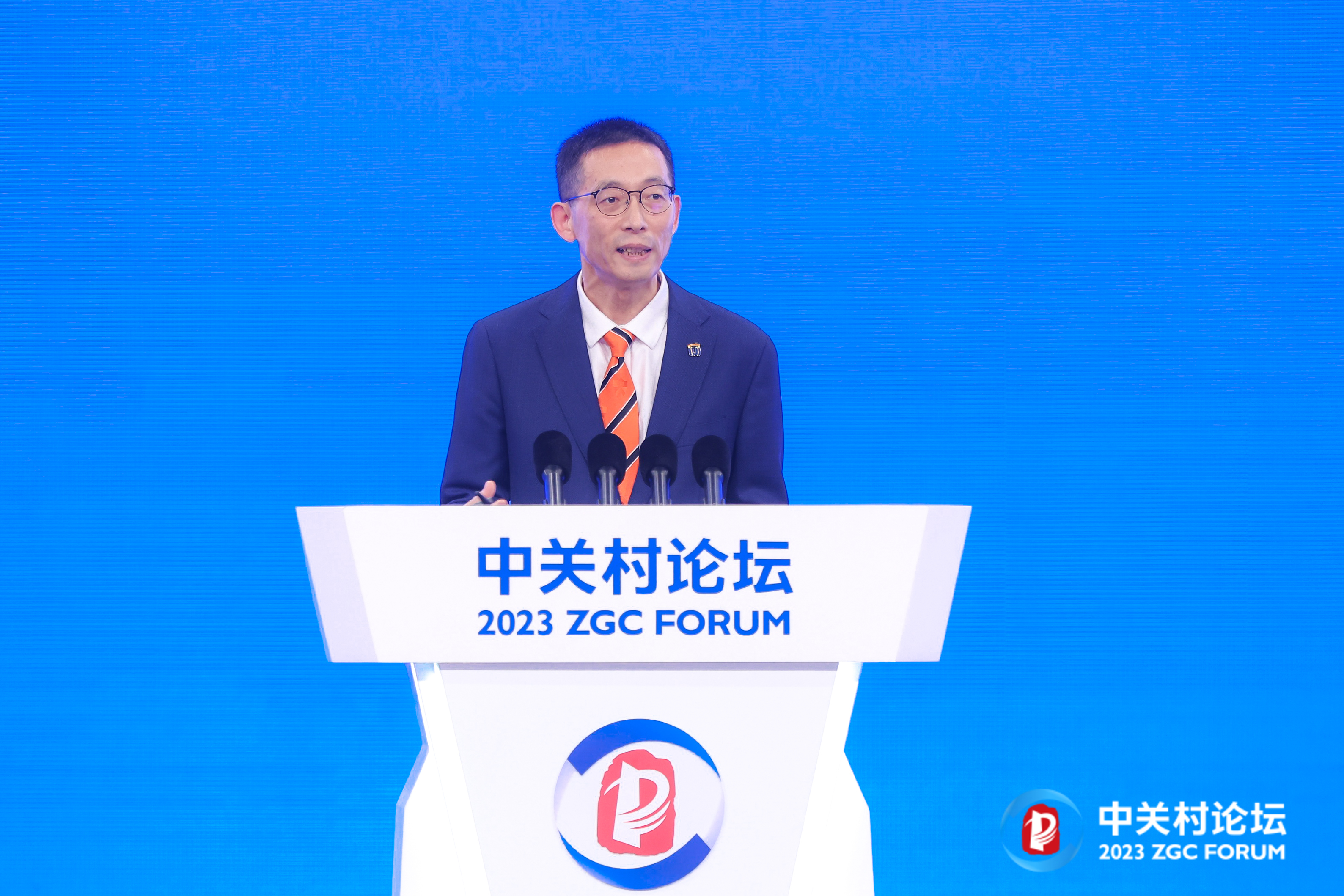Sci-tech Community Can Address Global Challenges

Shi Yigong, academician of the Chinese Academy of Sciences and president of Westlake University, delivered a speech at the 2023 ZGC Forum, on May 26, 2023. (PHOTO: ZGC Committee)
By Shi Yigong
In the past few decades, humanity has reached a beneficial consensus, namely to promote innovation infused with much diversity and differences. If our community with shared future for mankind is to continue developing, it is necessary to carry out cross-border, cross-field, and interdisciplinary cooperation.
It is difficult for a single country or a small regional scientific and technological organization to cope with challenges such as energy shortages, climate change, diseases, food security and bio-security on its own.
The only way out is to build a scitech community, which can solve these problems through high-quality international sci-tech cooperation.
Besides ranking 11th in the Global Innovation Index (GII) 2022, China's GDP hit 121 trillion RMB (about 17.9 trillion USD) last year, ranking second in the world. The country's development will benefit humankind and promote the development of the world.
But as the sci-tech competition and policy restrictions among major countries intensify, we also encounter obstacles while promoting sci-tech cooperation and development.
So how can effective cooperation be carried out?
The most important thing to solve the problem lies in people, especially highly talented individuals. This is because communication between people is the most fundamental cornerstone of cooperation. Talented people can only become better and bring better science and technology to the world if they fully communicate with each other. Non-governmental and high-level exchanges of this talent pool are therefore the most powerful and fundamental force to spur development.
Currently, China is gathering the world's top talent. Since the country's reform and opening up in 1978, nearly 6.5 million people have gone abroad to study as of the end of 2019, and about 4.5 million returned to China after completing their studies. They benefit humankind through their efforts, and contribute to the beauty of the world.
Also, China has problems in the development of its own talent. While they are becoming more abundant and contributing more to the country and the world, we are also facing the dilemma of still lacking top scientists and engineers. In such a situation, an open talent policy and a relaxed academic environment are particularly important.
A community with a shared future for mankind is the route one must take. And it needs a sci-tech community to support it.
From papermaking to the compass, gunpowder and printing, the four great inventions of ancient China are significant contributions of the Chinese nation to the world civilization, which have benefited the world and promoted the progress of human civilization.
In tandem with these past achievements, in the 21st century, I also believe that the development of China's science and technology will be for social good, bring benefits to the world, promote global win-win cooperation and contribute to the development of human civilization in the new era.
The article is an excerpt of the speech delivered by Shi Yigong, academician of the Chinese Academy of Sciences and president of Westlake University, at the 2023 ZGC Forum, on May 26, 2023.







